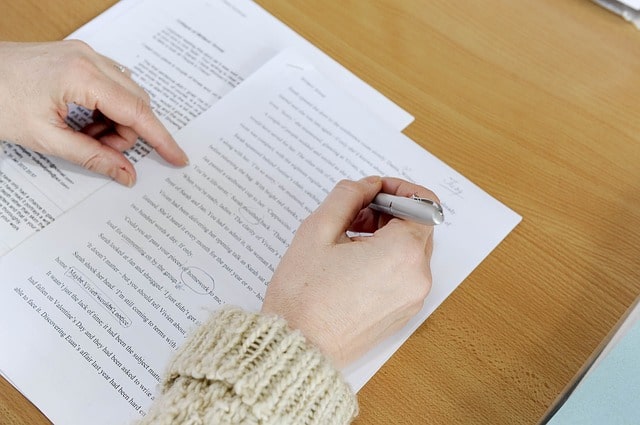The Ins and Outs of Technical Writing
March 4, 2022
Technical writing is a handy tool for anyone who wants to communicate tech-related information. It is an art involving communicating information from one person or group to another so that the intended audience understands and uses the information effectively.
However, the technical writing process is not complete without a skilled technical writer. One who is creative, innovative, organized, disciplined, and can communicate ideas concisely using appropriate language.
In this article, we will dissect the art of technical writing to equip you with everything you should know before you set out to write those technical documents.
What is technical writing?
Technical writing is a specialized form of communication that involves using simple language to convey complex ideas in an understandable manner.
In his book, The Insider’s Guide to Technical Writing, Krista Van Laan simply defines technical writing as “…a continuous process of learning, carefully gathering, sifting, organizing, and assessing, all while trying to craft something that makes sense for a user.”
This art of communicating complex ideas and instructions so that others easily understand them has been around since ancient times. The first known reference to technical writing was found in the writings of Aristotle (384-322 BC).
This included his summary of 'Doctrines of Pythagoras' and a dictionary of some philosophical terms.
Meanwhile, the term 'technical' referred to any kind of specialized knowledge and was first used in the 1930s when engineers began using written documents to communicate their work with one another.

However, the term became more widely recognized after World War II when the U.S. military adopted it for all of its technical publications. Since then, it has been applied to many different fields, including engineering, science, medicine, business, law, and education.
In modern times, however, there are many different types of technical writing, including:
- Technical documentation (technical manuals)
- Software documentation
- Website content
- User guides
- Training materials
- Presentations
- Advertising copy
- Instructional videos
- Computer-based training programs
How is technical writing different from other forms of writing?
In general, technical writing differs from most other forms of writing because it focuses on delivering information rather than entertainment.

For example, technical writers may write reports, manuals, specifications, letters, proposals, presentations, articles, and books.
Technical writing stands apart from other types of writing in its purpose and style.
Strictly utilitarian, this type of writing aims at conveying information rather than amusing or entertaining readers. Hence, it should be presented clearly, concisely, accurately, and objectively to keep readers engaged and interested.
In technical writing, there is no need to use a flashy writing style to appeal to readers’ emotions because anyone who picks up a technical article to read is already drawn to the subject.
So, technical writing strictly informs the readers in a simple, meticulously accurate, direct, and reader-friendly manner to move them to action.
Why is technical writing important?
Technical writing is needed in many different areas of our society today. It comes in handy in high-tech environments because their complex topics need simplifying to appeal to target audiences.
If your technical information is well documented, you will minimize misinterpretation and ensure that your audience follows the desired set of actions, such as complying with safety precautions or using a device safely.
The following are just a few examples of what you would need technical writing for:
- Software developers often need help creating documentation for their products. This includes user guides, installation instructions, and reference materials.
- Web designers need to create content that explains how to use their designs on the World Wide Web.
- Network administrators need to write documentation explaining how to set up a network.
- Business managers need to write reports describing their company’s financial status.
- Marketing departments need to create sales brochures and product catalogs.
- Public relations professionals need to write press releases and news articles.
- Government agencies need to write legislation and regulations.
- Corporate training departments need to provide instruction manuals for employees.
- Medical researchers need to write research papers and grant proposals.
- Engineers need to write specifications for their projects.
- Scientists need to write scientific papers and books.
How to Start Technical Writing
There are many different ways to begin writing a technical document. Here are three common approaches.
1. Brainstorming
Brainstorming is usually the first step to writing a document. When brainstorming, you will generate ideas, explore them, and develop them into a technical document.
It is a way of thinking about ideas for the project.
For example, you may find yourself talking out loud while sitting alone in a room, or you might write down notes on scraps of paper.
Brainstorming helps you think through all possible solutions to a problem before making a decision.

It’s also a valuable technique for coming up with great ideas for a book, article, speech, or other written pieces.
2. Freewriting
Freewriting is a method used to get thoughts flowing. It allows you to explore ideas without worrying about how well those ideas flow together.
This writing technique helps to generate new ideas and improve your writing craft. It also helps push through writer’s block and gives you fresh perspectives on any idea you may have while writing.
The idea is to write freely without any restrictions. You will not have to pay attention to grammar, spelling, or other writing rules. Instead, you can focus on clearing out distracting thoughts.
3. Concept Development
Concept development is a process of defining and refining ideas until you reach a final solution. Therefore, it requires careful planning and organization.

First, you'll need to make sure that everything fits together logically.
Once you've developed a concept, you'll need to test it. Testing involves asking people questions and observing their reactions.
Once you're satisfied with the results, you'll want to write up your findings.
What To Avoid in Technical Writing
Here are some things to avoid when writing a technical document.
1. Grammar and Spelling Errors
Grammar and spelling problems can cause several communication and miscommunication issues that can negatively impact your readers’ perspectives about your work. They will confuse readers and reduce the quality of the writing.
Common grammatical errors include sentence fragments, using unclear antecedents, misplaced modifiers, incorrectly using apostrophes, and improper use of punctuation, among others.
If you’re unsure about a word or sentence, you can use tools like Grammarly and Language Tool to cross-check your work and ensure it is free of grammar and spelling errors.
2. Poor Punctuation
Punctuation matters a great deal because proper punctuation is essential for successful communication. Punctuation marks help clarify meaning by separating words, sentences, and paragraphs.
If you misspell a word or put a comma where it doesn't belong, your reader won't know what you mean. Incorrect punctuation signifies a wrong relationship between ideas, which will confuse your readers.
Therefore, you need to double-check to ensure all necessary punctuation is in place within the document.

3. Lack of Style
Style refers to the overall appearance of a document. It is how you use your words, punctuation, formatting, grammar, and spelling.
A writing style includes elements like font size, typeface, margins, spacing, and page layout. If you don’t follow established guidelines for these elements, your document will look sloppy and unprofessional.
A lack of style will make people see you as a careless writer. But if you pay more attention to your writing style, it will reflect positively on your brand image.
4. Unnecessary Details
Details are sometimes necessary to explain concepts clearly, but too much detail can slow down reading.

It's easy to feel like you have to include every little fact and statistic in your document. However, don't let your desire to be thorough cause you to lose sight of the main point.
Good technical writers know that they need to be concise and leave out unnecessary details.
Re-reading your document after writing will help reveal any unnecessary information you might have included. If the reader does not have to know a particular detail, leave it out.
5. Inappropriate Language
If you want your audience to understand what you are talking about, you need to avoid using inappropriate language in your writing.
The use of inappropriate language in your technical writing will mar your credibility, weaken your argument, and turn off your audience. Some words are inappropriate for technical documents. For example, slang or colloquial language makes your document sound casual and informal.
Therefore, when writing, you want to ensure that your language suits the audience you are writing for and matches your purpose.
6. Inconsistent Formatting
Formatting refers to how text appears on a page. Different formatting styles increase readability and visual appeal. For example, boldface and italicized text stand out more than regular text.
However, if the formatting is inconsistent throughout your document, readers may find your document chaotic and difficult to read.
A well-formatted document is one with consistent, clear formatting. It will add more weight and credibility to your technical documentation and make it more reader-friendly.

7. Bad Organization
Organization refers to how the material is arranged within a document. This essential element ensures that your work is clear, logical, focused, and effective.
An organized document is more readable and visually appealing to readers. It is almost impossible to get someone to stick around and read your document if your work is not organized.
Also, if your tech-related document is organized, it flows smoothly from one topic to another. If your flow isn’t smooth, your audience may lose interest.
Final Thoughts
As you can see, effective technical writing takes a series of specialized skills. While you may be an expert in your field, chances are that writing just might not be your cup of tea.
If you find that you are lacking in any of the areas listed above, you may want to consider hiring a professional technical writer. A professional will be able to work closely with you to develop the perfect technical documents for your business, leaving you time to focus on the areas in which you excel.






























